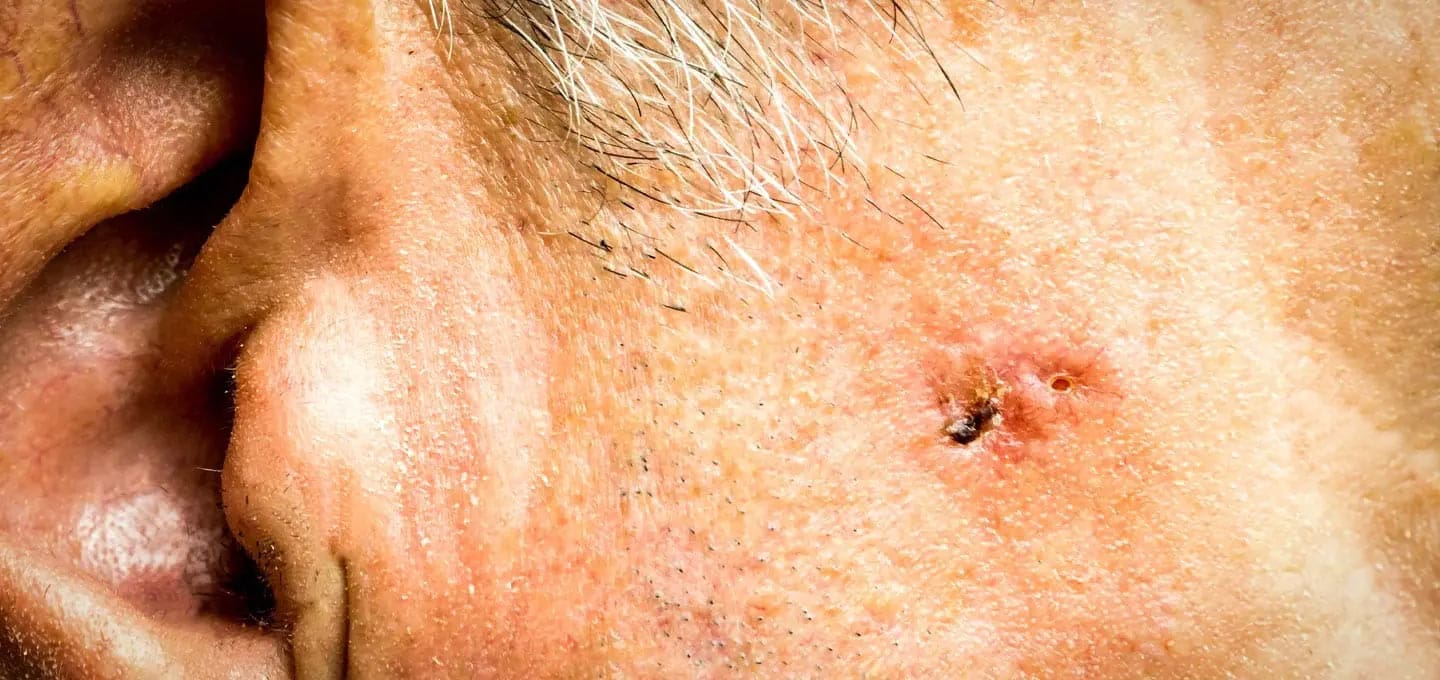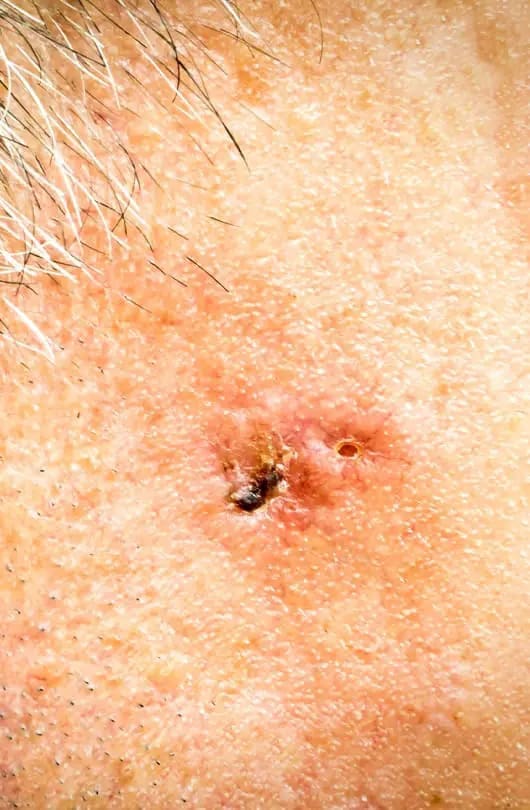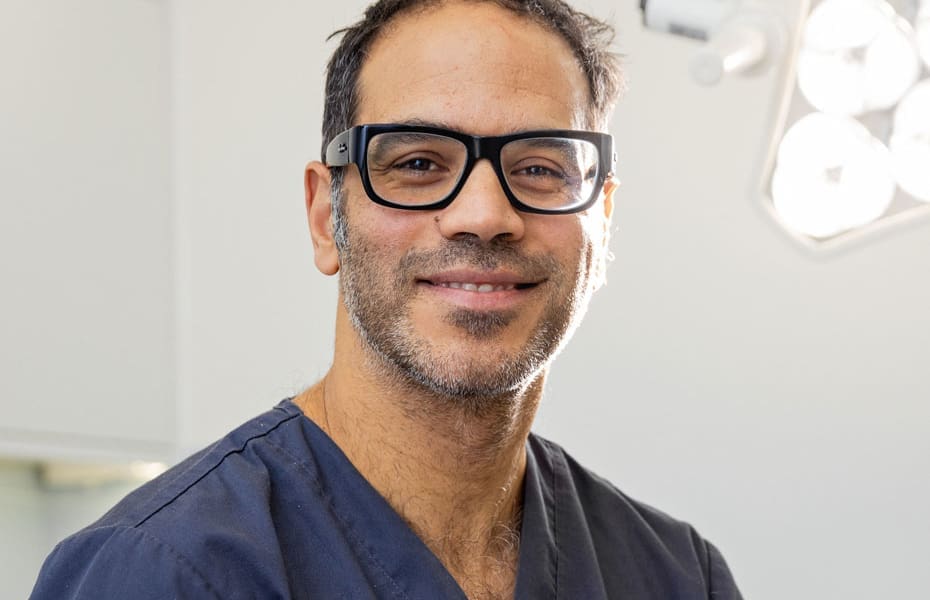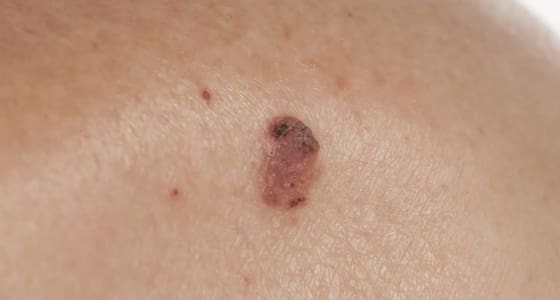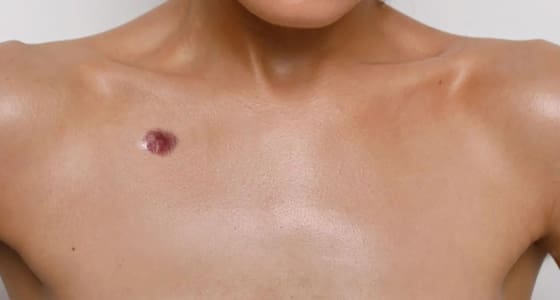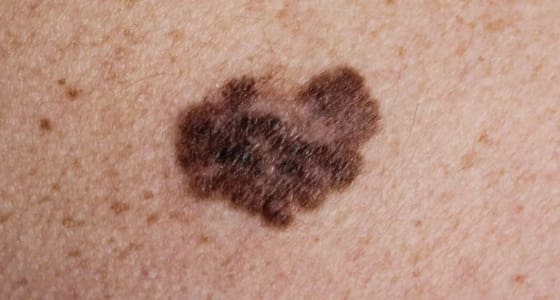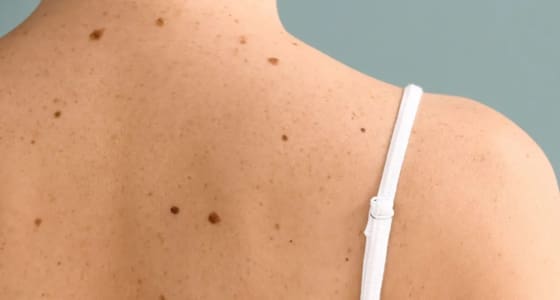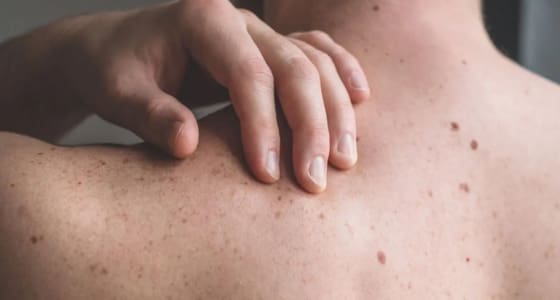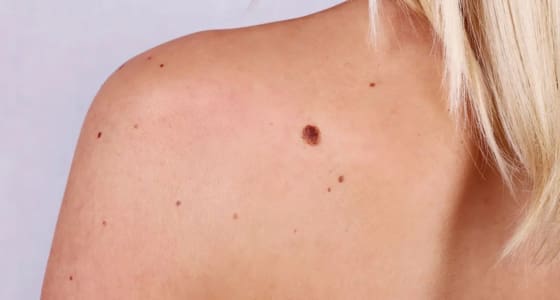While BCCs typically do not spread to other parts of the body, they can invade nearby skin and deeper tissues, causing significant damage if left untreated.
These cancers often appear as small, shiny bumps or pinkish patches of skin with a translucent or pearly appearance. They may develop into a sore that does not heal, sometimes presenting as a scab that bleeds occasionally. If left untreated, BCCs can erode the skin, leading to the formation of ulcers, commonly referred to as ‘rodent ulcers’.
Excessive exposure to ultraviolet (UV) light is the primary cause of BCCs, which commonly occur on sun-exposed areas such as the face, head, neck, and ears. They are more prevalent in fair-skinned adults and are more common in men than women. BCCs have an excellent prognosis as they are highly curable, with a low recurrence rate and minimal risk of spread or metastasis.
There are different types of BCC, including nodular BCC, superficial BCC, pigmented BCC, and morpheic or infiltrative BCC. Each type presents with unique characteristics and may require different treatment approaches.
At The Day Clinic, various methods are used to remove BCCs based on the size, location, and severity of the lesion. Surgical excision is a common approach, with options such as Mohs surgery or curettage and electrodessication also available in certain cases. Non-surgical treatments like cryotherapy or topical medications may be recommended by dermatologists for specific cases. All procedures are performed in purpose-built operating theatres under local anaesthesia for patient comfort and safety. If you notice any new or changing skin lesions or moles, seeking expert medical advice is crucial for timely diagnosis and treatment.
